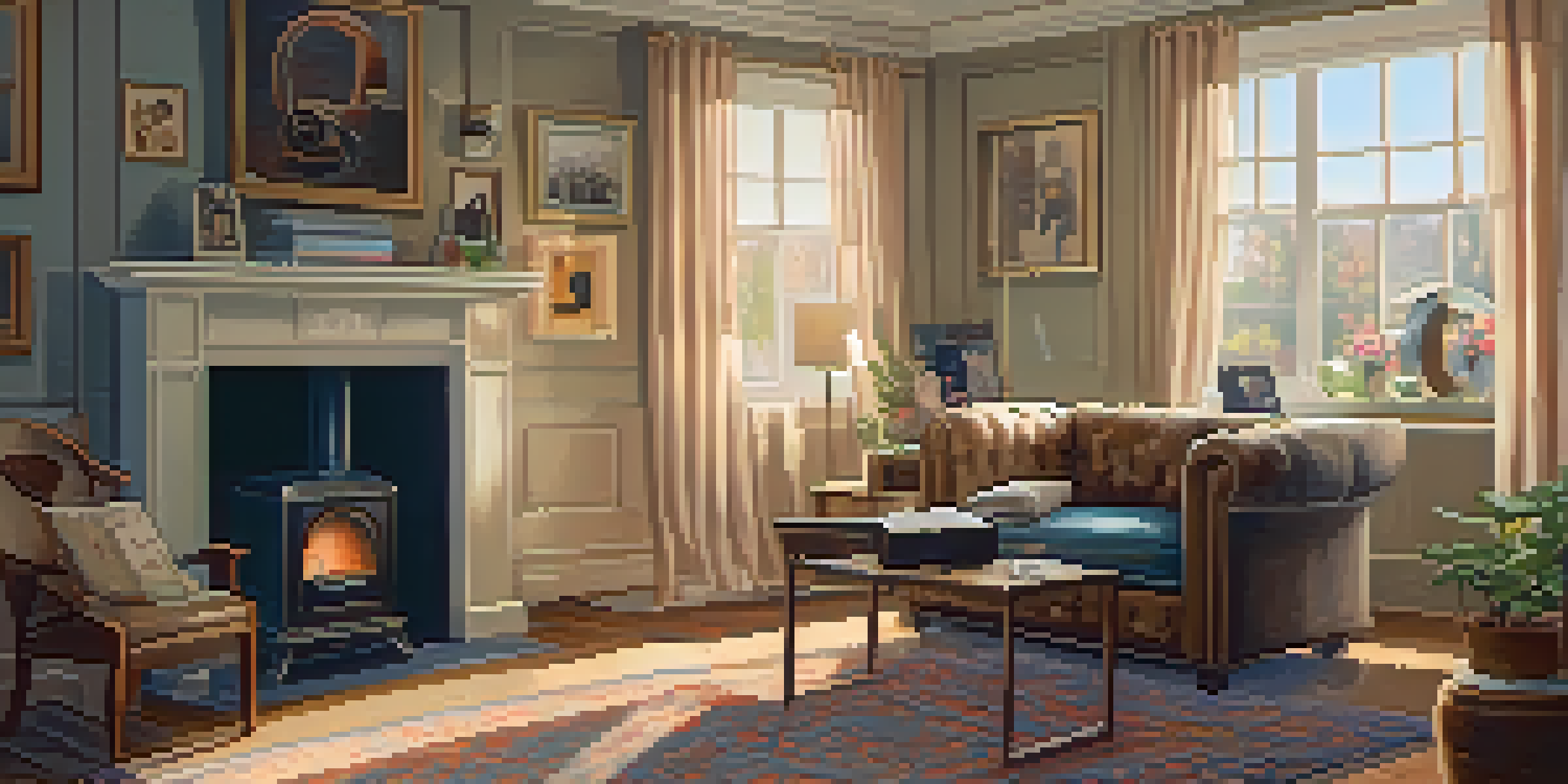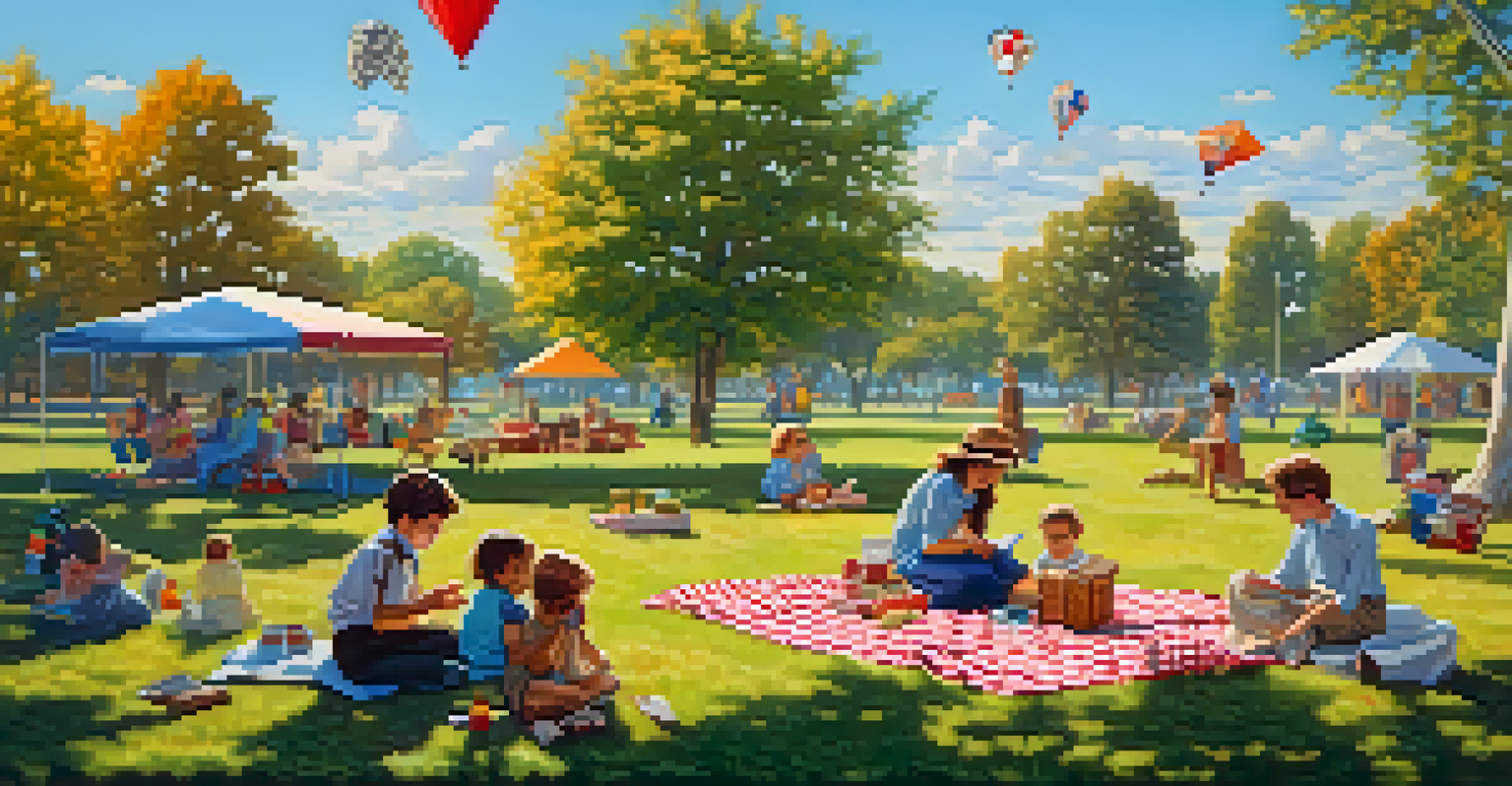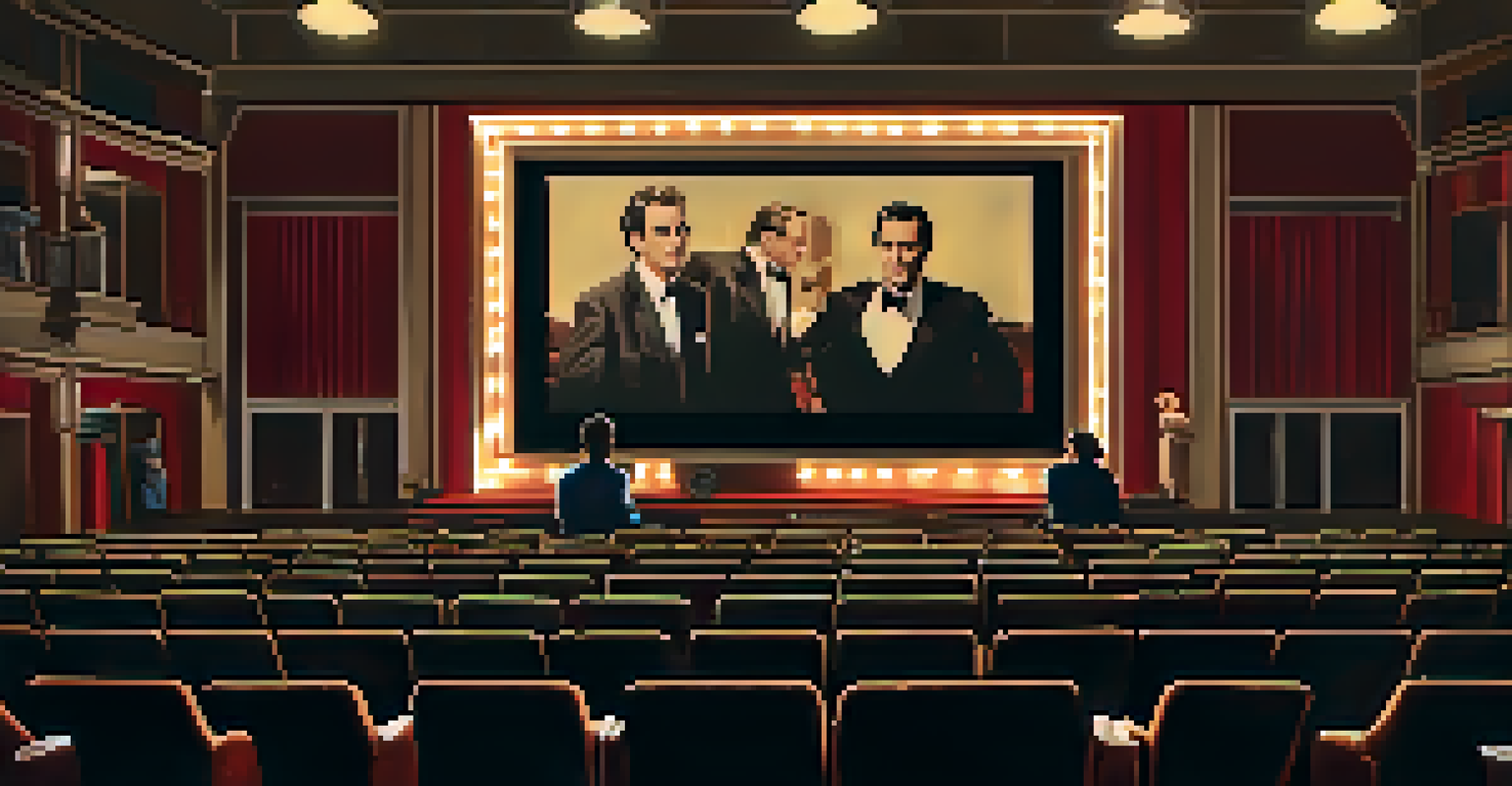Nostalgia in Film: The Power of Soundtracks on Memories

What is Nostalgia and Its Role in Film?
Nostalgia is that warm, fuzzy feeling we get when we think back to cherished moments in our lives. In film, nostalgia can be a powerful tool, evoking memories that transport us back to specific times and places. It’s not just about the visuals; the sounds we hear play a crucial role in this emotional journey.
Nostalgia is a powerful feeling; it can bring back memories that can shape our present.
When a film taps into our sense of nostalgia, it can create a deep connection. For instance, a familiar melody from our childhood can instantly remind us of summer days spent with friends. This connection between sound and memory is what makes soundtracks so vital in storytelling.
Directors and composers often collaborate to ensure that the music complements the storyline, enhancing the emotional impact. By weaving nostalgia into the fabric of the film, they invite audiences to experience a shared memory, making the narrative more relatable and memorable.
The Science Behind Soundtracks and Memory
Research shows that sound has a profound impact on memory recall. The brain processes music and memories in similar areas, creating a strong association between melodies and personal experiences. When we hear a particular song, it can trigger vivid memories from our past, often evoking emotions tied to those moments.

For example, think about the iconic soundtrack from 'The Lion King'. The songs like 'Circle of Life' can transport us back to when we first watched the movie, bringing forth memories of family movie nights. This phenomenon occurs because our brains are wired to connect sensory experiences, leading to a nostalgic response.
Nostalgia Deepens Film Connections
Films that evoke nostalgia create emotional connections by reminding viewers of cherished memories tied to specific songs and moments.
Moreover, soundtracks can help solidify the emotional tone of a film. A heartwarming score can evoke feelings of joy, while a haunting melody might bring sadness. This emotional resonance can enhance the way we remember the film and the memories it stirs within us.
Iconic Soundtracks That Spark Nostalgia
Some soundtracks have become legendary, forever linked to the films they accompany. Think of 'Titanic' and its heart-wrenching themes, or 'Forrest Gump', which features a collection of songs that define an era. Each of these scores not only enhances the film but also brings back personal memories for viewers.
Music can change the world because it can change people.
The power of these soundtracks lies in their ability to evoke collective nostalgia, making us feel part of something larger. When we hear 'My Heart Will Go On', it’s not just a song; it’s a reminder of a cinematic experience that many cherish. Such songs become part of our cultural fabric, transcending the screen.
Additionally, retro films often leverage nostalgia by incorporating music from the era they represent. This not only appeals to older audiences but also introduces younger viewers to the sounds of the past, creating a bridge between generations.
How Soundtracks Influence Our Emotions
Soundtracks have a unique ability to shape our emotional responses while watching a film. A suspenseful score can elevate tension, while a soft melody can bring comfort. This emotional manipulation is why filmmakers place such importance on choosing the right music.
For example, consider the chilling soundtrack of 'Jaws'. The ominous two-note theme creates a sense of dread before the shark even appears. This use of sound heightens our anticipation and fear, illustrating how effectively music can influence our feelings.
Soundtracks Shape Emotional Responses
The right music can manipulate audience emotions, enhancing the impact of pivotal scenes and creating lasting impressions.
In romantic films, soundtracks often highlight pivotal moments, enhancing the emotional weight of a scene. When a character shares a heartfelt confession accompanied by a touching melody, it leaves a lasting impression, reinforcing our emotional connection to the story.
The Role of Nostalgic Soundtracks in Modern Cinema
Today's filmmakers continue to harness the power of nostalgia through soundtracks. Many modern films feature remastered versions of classic songs, tapping into the nostalgia of audiences who grew up with them. This strategy not only attracts older viewers but also introduces timeless music to new generations.
A great example is 'Guardians of the Galaxy', which uses a mix of classic hits to create a nostalgic atmosphere. Each song is carefully selected to resonate with the characters’ journeys, making the soundtrack an integral part of the narrative. It encourages viewers to reminisce about their own pasts while enjoying the film.
As technology advances, soundtracks are becoming even more immersive. From surround sound to orchestral arrangements, filmmakers can create experiences that envelop audiences in nostalgia, making the emotional impact even more profound.
Nostalgia and Soundtracks in Different Genres
While nostalgia is often associated with dramas and romances, it plays a significant role across various genres. In animated films, for example, soundtracks often evoke childhood memories, allowing adults to relive their youthful joy. The cheerful tunes and catchy lyrics can transport viewers back to simpler times.
In horror films, soundtracks can utilize nostalgia to create a false sense of security, only to shatter it with unexpected twists. This technique heightens suspense and engages audiences on multiple levels, making the experience even more thrilling.
Nostalgia Bridges Generations
Modern films leverage nostalgic soundtracks to connect different age groups, introducing timeless music while appealing to shared memories.
Even in action films, nostalgia is leveraged through iconic soundtracks that have become synonymous with the genre. Think of 'Star Wars'; its score is instantly recognizable and evokes a sense of adventure and excitement, bringing viewers back to their first encounter with the franchise.
The Future of Soundtracks in Film
As we look ahead, the future of soundtracks in film appears promising, with technology continuing to evolve. Composers are experimenting with innovative techniques, blending traditional orchestration with digital sounds to create unique auditory experiences. This exploration opens new avenues for evoking nostalgia.
Additionally, the rise of streaming services has made it easier for filmmakers to curate soundtracks that resonate with audiences. By incorporating a diverse range of songs, they can appeal to a broader demographic, ensuring that the nostalgia factor remains relevant.

Ultimately, soundtracks will continue to play a pivotal role in shaping our cinematic experiences. As filmmakers strive to connect with audiences on an emotional level, the power of nostalgia will remain a cherished element in storytelling.